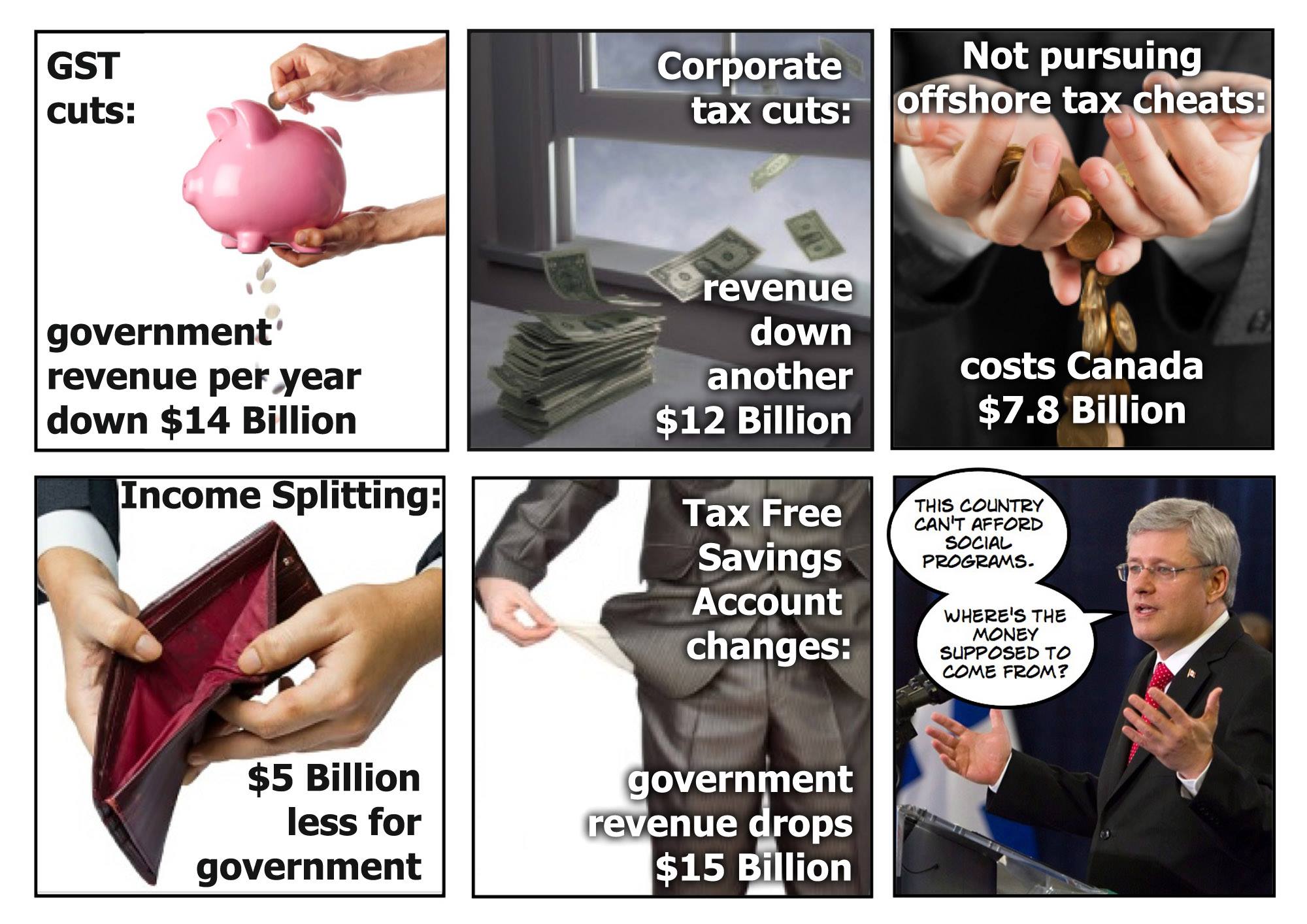Tax cuts for the rich, budget cuts for the poor

By Peter Ormond
We all know how taxes are supposed to work. Government collects money in taxes, and then spends that money on things the nation needs, like roads and hospitals. So what happens when a government decides that all taxation is bad, and is also pretty keen on axing public programs left and right in a blur of mean spirited austerity? Well, it’s a self fulfilling prophecy called “starving the beast.” The “starve the beast” strategy works like this:
1. Cut taxes.
2. Wait until the resulting budgetary deficit becomes a problem important enough to solve.
3. Cut spending in order to deal with the budget crisis.
4. Go to 1.
So, when you hear the Harper government crowing about cutting taxes, let’s take a look at the difference between cutting taxes based on an idea that all taxes and government are bad, and compare it to the idea that we might want to keep at least some of the public services we depend on, and that some taxes are fairer than others.
- Cutting the GST lightened the government’s coffers by $14 Billion/year.
- Every percentage point cut from corporate tax rates costs the country roughly $2 billion a year.
- If the Canada Revenue Agency was busy pursuing people who hide their revenue offshore to avoid paying taxes rather than attacking charities the Harper government dislikes, that would net us another $7.8 Billion.
- Income splitting costs us $5 Billion to put more money in the pockets of the rich.
- Changes in TFSAs will add up to another $15 Billion plus in revenue losses, which will also benefit pretty much only the rich.
This is the same strategy that is used to tell us that we can’t have national pharmacare, that transfer payments to the provinces to cover health care need to be slashed, that “cost savings” measures like destroying science libraries and ending environmental assessments need to take place, and more. It all boils down to the same thing that your household budget does: you need money coming into the budget to pay for the things you need to spend it on.
Incidentally, when you add up all of the taxes we pay, it turns out that the poorest 10% of Canadian citizens actually pay a larger share of their total income in taxes than the wealthiest 10% do, despite the fact that it causes them incredible hardship.
What would Canada look like under a government that taxed those who could afford it, and spent those revenues proudly to provide things Canadians need?
About Peter Ormond: Peter Ormon is a Green Party candidate for Hamilton, ON, who has taught courses related to engineering, renewable energy, business and the environment at various institutions including Mohawk College and McMaster University. Nationally, Peter is a past board member of the Canadian Solar Industries Association, and a former member of the Canada’s Energy Efficiency Working Group expert roundtable. Peter is actively engaged in the greening of Hamilton, and a member of many local organizations



